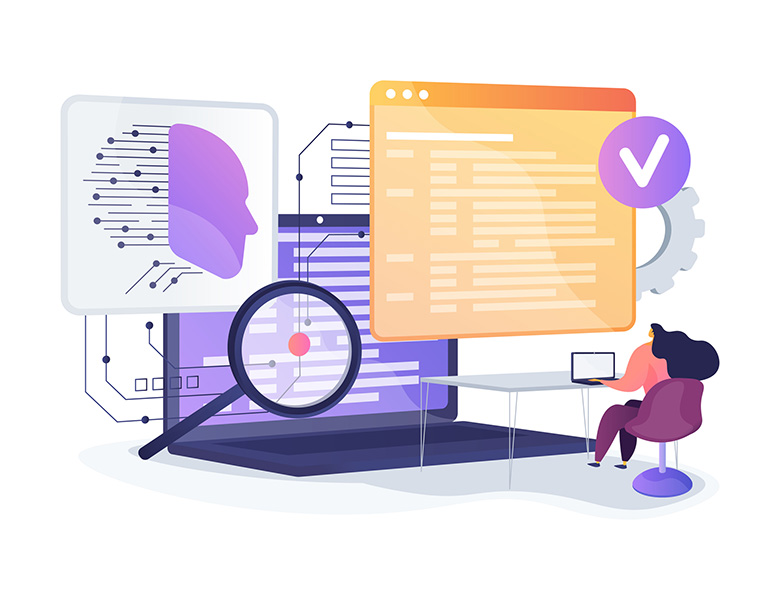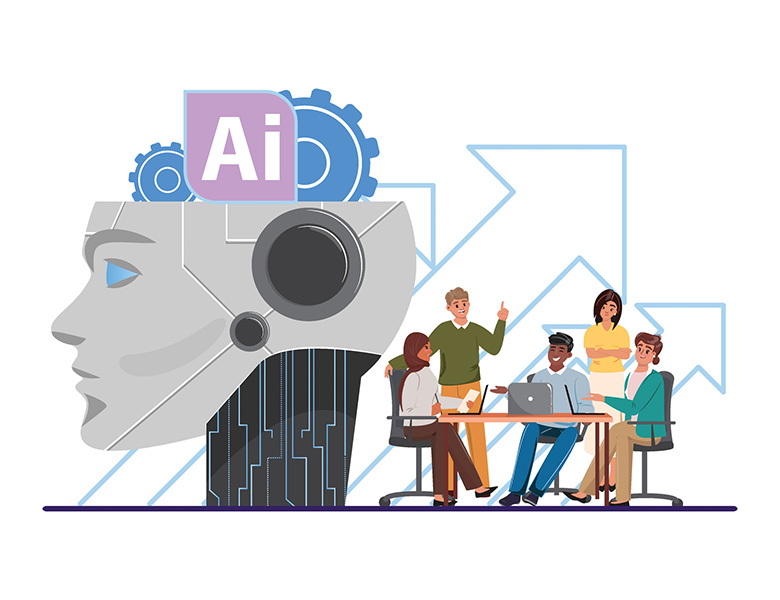Data and how you deal with it plays a crucial role in cutting-edge technologies. Whether it's web development, artificial intelligence, the internet of things (IoT), or any other technology project, how you store and manipulate your data effectively is one of the m
What is SQL?
Let's start by understanding what thost essential tasks you should focus on.
Basically, there are two major database types you can select from, SQL and NoSQL. Databases are a critical part of applications, but the main question that emerges is which type is the right option for your needs. In this article, you'll see what SQL and NoSQL are all about, how they compare on some basic points, and finally, you’ll find general guidelines when you should use each of them.ese technologies are.
Structured Query Language, or SQL for short, is a language that allows you to manage relational databases and perform a wide range of operations on the data they contain. Relational databases are data item collections linked together with predefined relationships. They are arranged into tables that have columns and rows, and SQL enables you to insert, update, delete, and search database records. Popular relational database management systems like Oracle Database, MySQL, PostgreSQL, and Microsoft SQL Server use SQL to perform specific database actions.
What is NoSQL?
Not only SQL, or NoSQL as it's widely known, is an alternative database design approach to relational databases. In NoSQL databases, you're not bound by a relational schema or structure because the data isn't stored in tables as it is in relational databases. NoSQL databases provide flexible schemas and don't have a specific format but based on their data model they can be grouped into four categories.
- Document databases store semi-structured data in a key-value pair format that has many similarities with JSON objects. This category is a good option for monitoring and content management applications.
- Key-value databases use a model that stores data as unique identifiers (key) with a value assigned to them. Also known as a key-value pairing, this category is suitable for storing clickstream data.
- Wide-column databases are a NoSQL database type where data is stored into extensible and flexible columns. It's often described as a two-dimensional key-value database and has applications in large-scale web applications.
- Graph databases store data items into nodes and their relationships into edges. This type adds the element of direct connections between data items and is used widely to build recommendation engines, fraud prevention systems, etc.
The most popular NoSQL databases in each category respectively are MongoDB, Redis, Cassandra, and Neo4j.
Comparison of SQL and NoSQL
Each technology has its advantages and disadvantages. What to select depends on what you want to accomplish as there's no one-size-fits-all solution. Below, you can find how the two technologies compare on some key characteristics to give you a clearer picture.
Scaling
NoSQL databases scale-out and use a distribution method called sharding by default. With sharding, your data is spread across multiple database instances, which increase your system's storage capacity. Because your workloads are spread across multiple servers, a sharded database can process queries faster than a single server system.
SQL databases can scale up vertically. This means that in order to handle the increasing workload, they need additional hardware that will allow them to spread it evenly across a number of servers. In cases where SQL databases have difficulty scaling, like write-heavy systems, a form of data sharding can be implemented, but it is not as effective as with NoSQL systems.
Query Speed
Data in NoSQL databases is denormalized. This means that information required for a particular query is often stored together, leading to faster results. On the other hand, in SQL databases, the required information might exist in multiple tables. Therefore, if you have large data volumes and the information you need spans multiple tables, query results become more complex and time-consuming.
Community
SQL databases are well established and have managed to create a large community throughout the years that also offers quality documentation and support. While NoSQL databases, from a community perspective, aren't yet where SQL is, they're becoming more and more popular and building their own devoted user base.
Learning Curve
SQL is one of the most used programming languages worldwide. Its syntax is comprised of simple English words that are easy to learn. With SQL, you can easily and effectively manage and perform actions on any relational database. In contrast, there's no standardized language for querying NoSQL databases. There are syntax differences among the various database platforms that increase the learning curve and make it harder to find employees specializing in the NoSQL platform you are using.
Property Compliance
The acronym ACID (Atomicity, Consistency, Isolation, Durability) describes properties that ensure that database transactions are done reliably and consistently even if errors and power failures occur. Compliance with ACID is particularly important for applications that require a high degree of data integrity, such as financial systems. SQL-based systems fully support ACID, making them a good choice for applications with no room for error. On the other hand, not all NoSQL databases support ACID. There are cases like MongoDB where ACID transactions are supported, but most systems comply with the CAP theorem (Consistency, Availability, Partition tolerance), which says that a distributed database solution can ensure only two properties at the same time. Selecting the most appropriate tool depends on your needs.
Schemas
SQL databases have a pre-determined schema that specifies how to store data and configure your tables. As a result, they have a more rigid design that lacks flexibility but leads to better data storage and enhances data consistency. NoSQL database systems, as mentioned earlier, have dynamic schemas with no predefined data structure. Although they provide flexibility as they allow data to be stored in many ways, data is often unorganized and messy.
When To Use Each Technology
Before you decide which database solution to implement, you'll have to examine in-depth what are your current needs but also estimate your future requirements. Many options in the market could solve your problems and meet your expectations, but in an evolving landscape, you should be flexible, stay up to date with the latest technology developments, and always seek the solution that's best for you.
General Guidelines for Using SQL
- When your data is highly structured and easy to organize, SQL-based databases are the most reasonable choice. An optimized database schema will allow you to mitigate data duplication and eventually improve data quality.
- When your application needs a high level of data integrity, consistency, and ACID compliance is a requirement then SQL is preferred. Relational databases ensure that queries will return reliable results and that data won't be lost by mistake, which is critical when dealing with sensitive information.
- When you work with complex queries that need to be run against structured data, SQL databases are more effective in this case because they can join data from multiple tables, making the processing of complex queries more reliable. Furthermore, SQL language is more standardized and easier to use, so you can perform advanced queries that would otherwise be difficult.
- When you have a specified volume of data that you don't expect to change drastically, and your data structure doesn't change often, then SQL-based databases are the safest choice.
General Guidelines for Using NoSQL
- When you have to handle a variety of data formats, NoSQL databases are a good choice. They can handle unstructured or semi-structured data that isn't suited for relational databases.
- When you expect rapid data growth, NoSQL has you back. NoSQL databases give you the flexibility to handle the sudden growth of your application. Similarly, if you need to scale down, it's easier with a NoSQL database solution.
- When data integrity and ACID compliance isn't a prerequisite for your project, and you favor high performance with low latency, which is very common in cases like instant messaging applications, NoSQL is more suitable.
- When you expect your requirements to change, NoSQL's flexible schemas allow you to make changes faster and more efficiently. You can seamlessly add new features to your application without a lot of hassle.
Conclusion
When starting a new project, choosing the right database is a big decision. There's no fast rule for which technology to use because each situation is different. In any case, you should do your research, understand the advantages and disadvantages of each solution and make the most informed decision based on your needs. In order to meet the complex requirements of modern projects, it's not uncommon to implement both database systems.
Do you want to discuss whether SQL or NoSQL makes sense for your project? Let’s chat! Solwey can help you decide!





